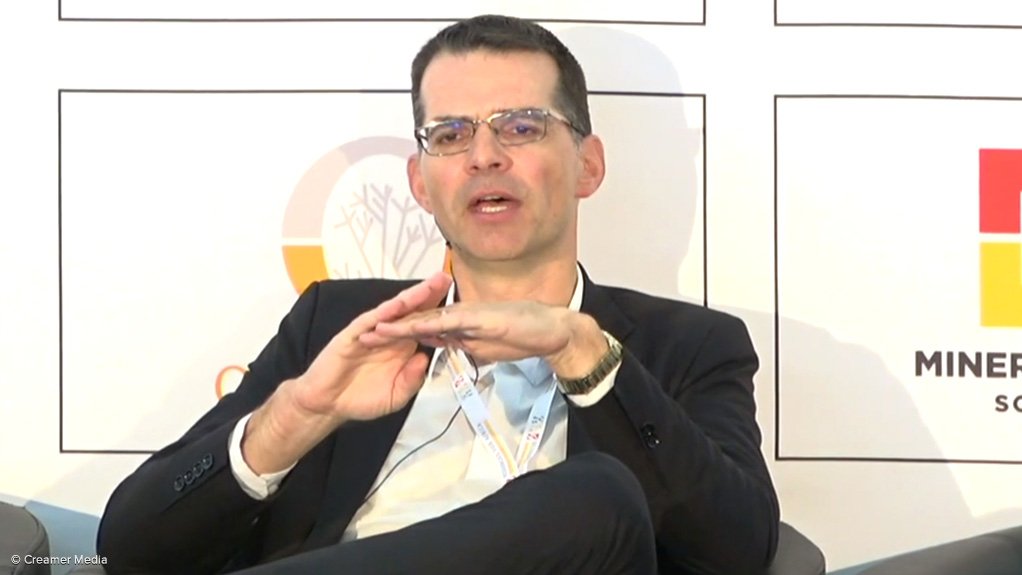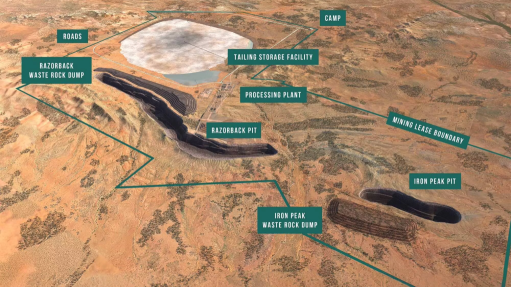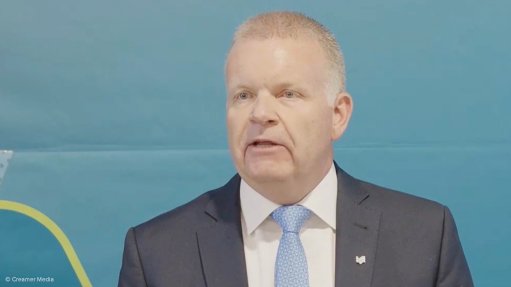Medium-Term Budget's logistics, infrastructure focus to benefit mining, says Minerals Council
Minerals Council South Africa says it is encouraged by the focus in the Medium-Term Budget Policy Statement (MTBPS), delivered by Finance Minister Enoch Godongwana on October 30, on initiatives to lift growth-enhancing public sector infrastructure investment.
“Among other measures, this includes actions to scale up private-sector participation, carve out government borrowing for infrastructure as a standalone category of government’s overall borrowing requirements and extend the scope of borrowing to include infrastructure bonds,” said chief economist Hugo Pienaar.
“If these measures prove to be successful, they will contribute to the next few years being the 'infrastructure years', as the late former Finance Minister Tito Mboweni said in one of his last public interviews.
“Improved public infrastructure spend will not only benefit mining through lowering the cost of doing business and unlocking latent growth potential, but also boost demand for mining-related building materials,” Pienaar said.
Further, the MTBPS had particular relevance for the mining sector as it noted that State-owned Transnet's poor rail and port performance, regulatory bottlenecks and crime were offsetting the mining sector’s gains from improved electricity supply.
Mining production remained below the pre-Covid-19 level, and the Minerals Council had consistently highlighted these same issues as among the major constraints holding back the mining sector, he said.
A key component of the challenge in the logistics sector was a weak Transnet balance sheet. As expected, the MTBPS was firm that at this stage Treasury remained opposed to any further financial support for Transnet in addition to the R47-billion guarantee facility announced in late-2023, he added.
The MTBPS argued that Transnet needs to dispose of noncore assets and reduce its cost structure. Further, Transnet should explore alternative funding models for infrastructure and maintenance. These include project finance, third-party access, concessions and joint ventures.
“While we fully support these sentiments and appreciate the country’s fiscal straight jacket, it remains unclear how Transnet will fund a significant maintenance backlog without a degree of balance sheet recapitalisation that is tied to strict conditions,” said Pienaar.
As the experience with Eskom had shown, some relief of balance sheet pressures should enable Transnet to spend more on infrastructure upgrades and maintenance, he emphasised.
“This will not only boost growth, investment and jobs in the bulk mining industry, which is responsible for almost 50% of total mining production and which provided export earnings of more than R260-billion in 2023, but it will also support non-mining sectors such as agriculture and manufacturing.”
Private-sector participation in the logistics sector was a much-needed reform but was unlikely to materially improve operational performance in the absence of significant near-term investment that improved the quality of logistics infrastructure, Pienaar added.
The MTBPS said, after subdued growth of 1.1% in 2024, it saw real GDP growth in South Africa averaging 1.8% between 2025 and 2027, which was somewhat higher than the International Monetary Fund's latest projection for average medium-term growth of 1.5% in South Africa.
The MTBPS noted that the slightly higher growth forecast was a function of improved power supply and better business, consumer and investor confidence tied to the Government of National Unity.
However, another looming risk to mining and the economy more broadly was State-owned Eskom’s application for an untenable electricity price increase of more than 36% in 2025, said Pienaar.
In its modelling, National Treasury has a much lower assumption for the increase in the CPI electricity component of 12.3% in 2025.
This highlighted upside risks to inflation and downside risks to growth if Eskom’s tariff application was approved, he said.
Additionally, on the regulatory front, the MTBPS said the process to split the Department of Mineral Resources and Energy into two departments should be completed by April 2025.
This is good news as it should result in a more mining-focused Department of Mineral and Petroleum Resources, he said.
Meanwhile, outside of mining, the key takeaway from the MTBPS was that South Africa’s public finances remained precarious.
At 75.5% of GDP in 2025/26, gross debt was now projected to peak somewhat higher than envisaged in the February 2024 Budget. The higher debt peak was a function of lower revenue projections and more spending.
Although moving lower as the Treasury budgeted for primary budget surpluses, the debt ratio also remained higher over the medium term than outlined before. It now ended at 69.3% of GDP in 2031/32 versus the 67.1% expected in February, Pienaar emphasised.
Article Enquiry
Email Article
Save Article
Feedback
To advertise email advertising@creamermedia.co.za or click here
Press Office
Announcements
What's On
Subscribe to improve your user experience...
Option 1 (equivalent of R125 a month):
Receive a weekly copy of Creamer Media's Engineering News & Mining Weekly magazine
(print copy for those in South Africa and e-magazine for those outside of South Africa)
Receive daily email newsletters
Access to full search results
Access archive of magazine back copies
Access to Projects in Progress
Access to ONE Research Report of your choice in PDF format
Option 2 (equivalent of R375 a month):
All benefits from Option 1
PLUS
Access to Creamer Media's Research Channel Africa for ALL Research Reports, in PDF format, on various industrial and mining sectors
including Electricity; Water; Energy Transition; Hydrogen; Roads, Rail and Ports; Coal; Gold; Platinum; Battery Metals; etc.
Already a subscriber?
Forgotten your password?
Receive weekly copy of Creamer Media's Engineering News & Mining Weekly magazine (print copy for those in South Africa and e-magazine for those outside of South Africa)
➕
Recieve daily email newsletters
➕
Access to full search results
➕
Access archive of magazine back copies
➕
Access to Projects in Progress
➕
Access to ONE Research Report of your choice in PDF format
RESEARCH CHANNEL AFRICA
R4500 (equivalent of R375 a month)
SUBSCRIBEAll benefits from Option 1
➕
Access to Creamer Media's Research Channel Africa for ALL Research Reports on various industrial and mining sectors, in PDF format, including on:
Electricity
➕
Water
➕
Energy Transition
➕
Hydrogen
➕
Roads, Rail and Ports
➕
Coal
➕
Gold
➕
Platinum
➕
Battery Metals
➕
etc.
Receive all benefits from Option 1 or Option 2 delivered to numerous people at your company
➕
Multiple User names and Passwords for simultaneous log-ins
➕
Intranet integration access to all in your organisation



















